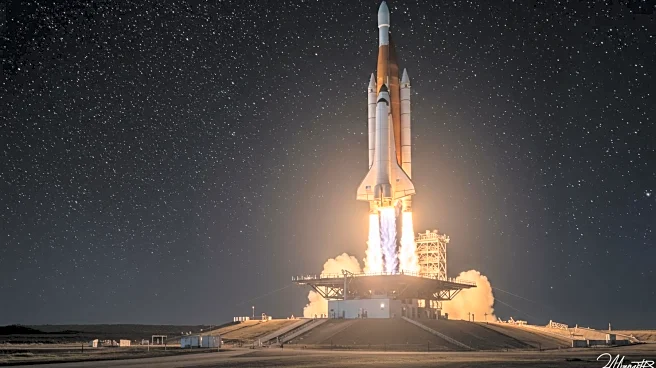What's Happening?
An executive order issued by President Trump seeks to streamline the regulation of U.S. commercial space operations to enhance the nation's competitiveness and ensure global leadership. The directive emphasizes the importance of originating new space-based industries, exploration capabilities, and defense systems from the United States. The order outlines a policy to increase commercial space launch activities by 2030 and mandates the Federal Government to simplify commercial license and permit approvals for U.S.-based operators. The Secretary of Transportation, Sean Duffy, is tasked with expediting environmental reviews for space launch and reentry licenses, while the Secretary of Commerce, Howard Lutnick, is directed to elevate the Office of Space Commerce within the Department of Commerce.
Why It's Important?
The directive is significant as it aims to position the United States as a leader in the burgeoning global space economy, which reached $613 billion in 2024 and is projected to hit $1 trillion by 2032. By streamlining regulations and fostering innovation, the U.S. can enhance its competitive edge in space exploration and commercial activities. This move could benefit industries involved in space technology, launch services, and related sectors, potentially leading to increased investment and job creation. However, it also raises concerns about environmental impacts and regulatory oversight, which will need careful management.
What's Next?
The directive sets a timeline for various actions, including the establishment of new positions within the Department of Transportation and Commerce to advise on innovation and deregulation. The FAA Administrator is tasked with appointing a senior executive to oversee commercial space transportation. Additionally, a memorandum of understanding is to be drafted to align review processes for spaceport development across relevant agencies. These steps aim to facilitate the growth of U.S. space operations and infrastructure, with potential implications for national security and international competitiveness.









